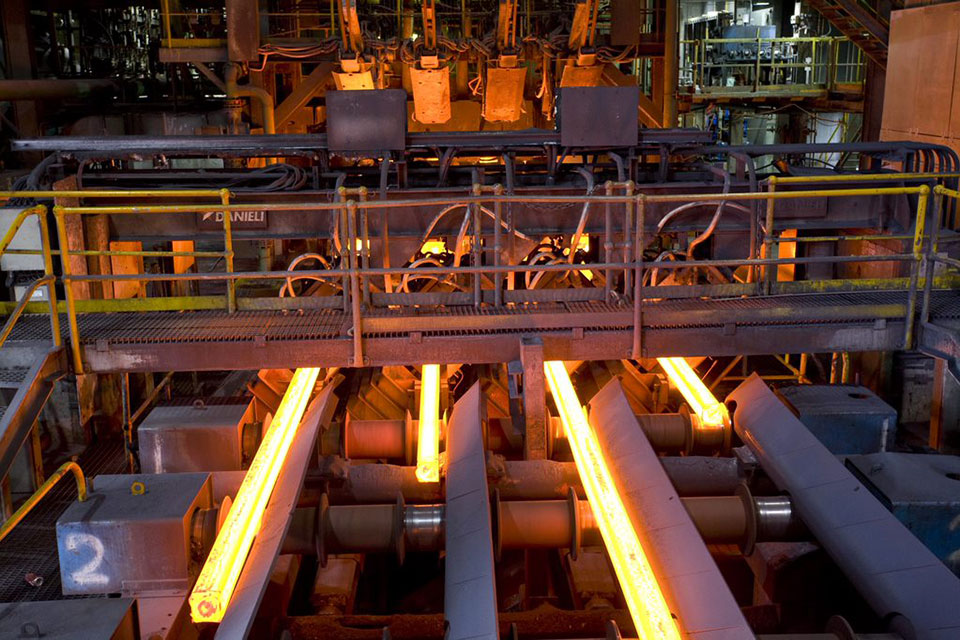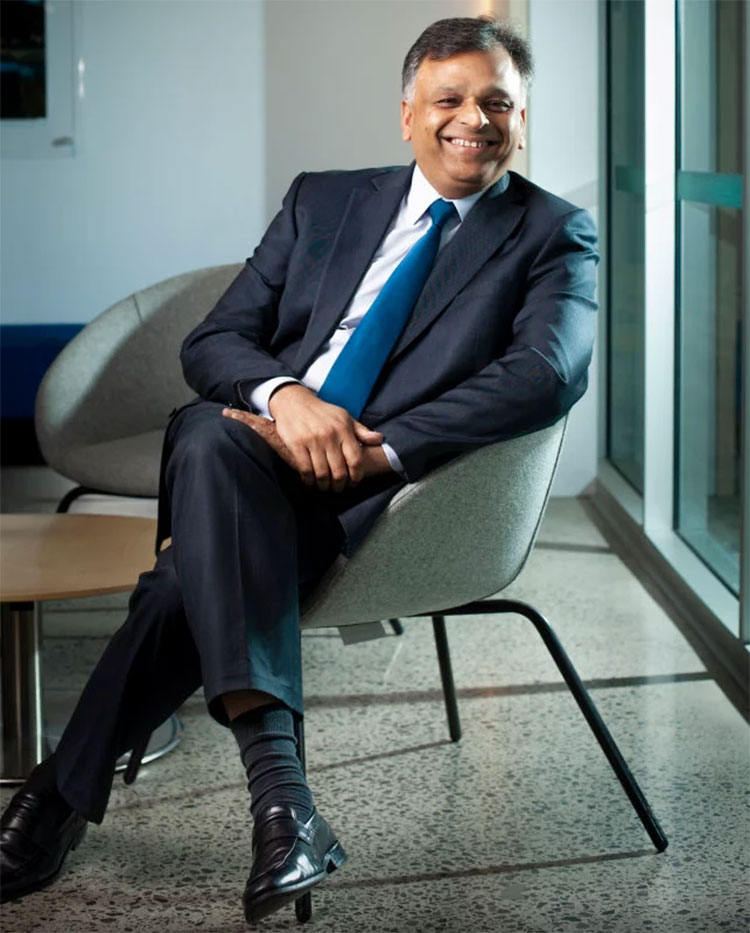CEO Spotlight: InfraBuild CEO Vik Bansal Believes Australia’s Manufacturing Sector Can Thrive Post-pandemic

The coronavirus pandemic has placed stress on global supply chains at unprecedented levels. There are many factors that have contributed to this including increased demand, Covid-related labour shortages, and a scarcity of raw materials, and what started with bottlenecks at international shipping terminals has reverberated throughout supply chains, all the way down to warehouses and distribution centers.
The strain created by these overwhelmed systems are causing developed countries to now rethink their dependencies, and Australia is no exception. Even as economies rebound and businesses reopen across the globe indicate the search for a return to normalcy, the ramifications of a weakened domestic manufacturing sector are still being felt.
However, where there is weakness there is also opportunity. This is the viewpoint of Vik Bansal, the newly appointed Chief Executive Officer of InfraBuild, Australia’s leading integrated steel manufacturing, distribution and recycling business. During his time there, Mr. Bansal worked to transform not only the business, but the waste management sector as a whole, advocating for Australia to build recycling infrastructure that would see it create a circular economy. He has similar aspirations for the state of Australia’s manufacturing sector, and believes that with hard work it too can grow in strength, creating a path to long-term sustainability and self-sufficiency.
Australia has roots in strong manufacturing
According to Bansal, the coronavirus pandemic has highlighted that Australia has let its manufacturing sector languish to the detriment of all. During the mid-20th century in the post-World War II era, one in three Australians worked in the manufacturing sector, whereas today that figure is just one in 13. Even just 50 years ago in the 1970’s the manufacturing sector made up 30 percent of Australia’s Gross Domestic Product, but today it is as little as six percent. Instead, the country would choose to export raw resources to other countries who then added value themselves, only to then import the finished products back into the country.
The Australian government introduces the Modern Manufacturing Initiative (MMI)
In October of 2020 the Australian government announced the Modern Manufacturing Initiative (MMI), a $1.3 billion fund meant to drive lasting change for Australian manufacturers. The MMI is a key factor in the government’s Modern Manufacturing Strategy, its plan to harness Australian manufacturing capability and drive economic recovery as well as future resilience. By changing the view of Australia to that of a high-quality and sustainable manufacturing nation, the government hopes to create a more strong, modern and resilient economy.
“To me, the initiative’s development acknowledges the role of a thriving domestic manufacturing sector,” said Bansal. “The former way of doing things is a one-way track to an undue reliance on global markets, international trading partners and supply chains which we have learnt over the course of the past 15 months or so, are not always robust.”
Bansal also said the strength of domestic manufacturing would have a profound effect on the employment of individuals, in turn creating robust and healthy local communities and economies.
“A service-industry based society does well during the good times but as we’ve seen, can be disrupted and knocked off course quickly resulting in mass unemployment which carries with it a multitude of social and economic issues,” said Bansal. “A nation with high-quality manufacturing capability has inherent stability and greater long-term sustainability. It builds sustained human capabilities and an innovative culture which then goes into other sectors of the country.”
The Modern Manufacturing Initiative and Infrabuild
The MMI has the potential to transform Australia’s steel industry, both in terms of its economic output and sustainability. In particular, as Australia’s only vertically-integrated EAF steel manufacturer and recycler, InfraBuild can benefit from the initiative’s Recycling and Clean Energy Priority area, which indicates an aim to provide investment and support for manufacturers in the renewable energy sector as well as in low-carbon metals manufacturing.
The company has been applying low-carbon steel manufacturing technologies and processes for a number of years, using their trademarked GREENSTEEL manufacturing approach to produce lower carbon steel. This includes recycling and upcycling scrap metal which reduces pollution, saves resources and reduces the amount of waste going to landfill. The scrap metal feedstock is used in its electric arc furnaces which greatly reduce the energy and resources required to make steel when compared with primary steelmaking from ores.
These initiatives show the clear role InfraBuild will play in creating a strong and sustainable local steel industry that continues to invest in Australia. By collaborating with the government as well as construction partners to improve supply chain capability, traceability and efficiency and working to innovate in the areas of high-strength low-carbon reinforcing steel through research and development, Infrabuild under Bansal’s leadership can continue to provide domestic market with product and services that have unequivocal advantages over overseas suppliers.
The manufacturing sector is a pivotal factor in the growth of a nation. Homes, schools, offices, bridges, hospitals, roads, fencing, rural products – steel is a necessity for the infrastructure in Australia and indeed any country, which is why it also makes economic sense to build a vibrant local steel industry.
Today more than 100,000 Australians work in the steel industry, and according to research from the World Steel Association, the manufacturing industry is a strong multiplier on economic growth and job creation. For every job created in the steel industry 8.1 jobs are indirectly created as a result, and for every dollar of value added by work within the steel industry, a further $2.50 of value-added activity is supported throughout the supply chain.
For Bansal, a thriving manufacturing and steel industry is exactly what the doctor ordered for helping Australia move forward in a post-pandemic world. Covid-19 has irrevocably changed the way governments across the world are looking at their supply chains, and industries. While it may be a hard pill to swallow in recognising the ways we have failed to support local manufacturing, through collaboration between industry and government Australia can re-grow the sector to even greater heights.
“I’m excited about the future of manufacturing in Australia, the clear policy framework the government has put in place to ensure its revival, and the critical role that the domestic steel industry will play as an enabler of long term economic and social sustainability for generations to come,” said Bansal.
Connect with Vik Bansal on his website and F6s.
Bring the best of the CEOWORLD magazine's global journalism to audiences in the United States and around the world. - Add CEOWORLD magazine to your Google News feed.
Follow CEOWORLD magazine headlines on: Google News, LinkedIn, Twitter, and Facebook.
Copyright 2025 The CEOWORLD magazine. All rights reserved. This material (and any extract from it) must not be copied, redistributed or placed on any website, without CEOWORLD magazine' prior written consent. For media queries, please contact: info@ceoworld.biz









